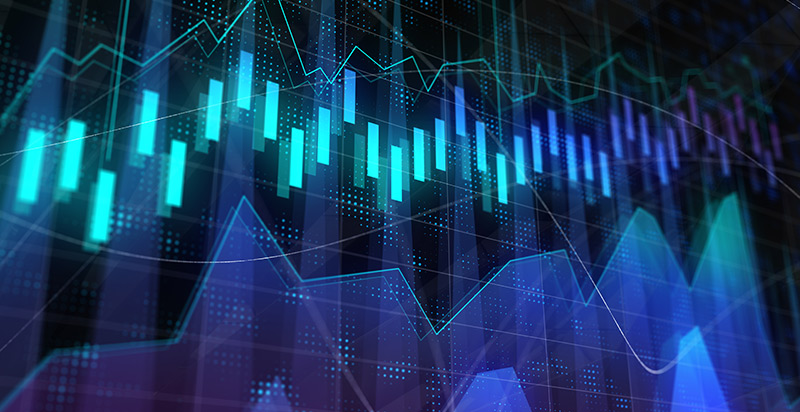September Trading Insights from David Long

Yet another testing month is behind us. With the US dollar still stuck in the range between 95.20 and 93.40. Commodities fell early on in the month thanks to trade war escalating, but as the war disappeared from headlines the commodity market found a floor. Gold has been sideways for last week or so and oil has been slowly rising again. Stocks too have been choppy and difficult to stay in. They have rallied most of the month, until last week’s earnings came in. The tech sector was particularly hit hard with rapid selling thanks to Facebook and Twitter missing expectations.
The markets are driven by sentiment. Sentiment not only from Monetary Policy as set by the Central Banks but also sentiment from major headlines. The US President is one walking headline, tweeting late at night or otherwise. Antagonising friends and enemies alike with his rhetoric and policy settings. Sentiment drives price action and technical analysis is then applied. Recently the technical and fundamental picture haven proven to be of little value as the market bounces from one headline to the next.
Trading the divergence of one Central Bank’s policy against another is a strong approach to investing with a view of a few days to months. Even trading with a country’s economic strength and monetary policy yields fruitful outcomes. Headlines of tariffs and wars that are on and off again swing the markets in and around the direction of the Central Bank. Trump certainly has made life far more difficult for Draghi, Powell, Carney, Kuroda et al, let alone for investors and speculators with mid to longer term views.
There have been few trends this month, if you’re a range trader you would have, or should have done reasonably well in July. For trend traders, it has been tough. Trends have only been available in the lower time frames such as H4 and H1, and even then, not for many cycles at all. The bearish move in emerging markets has all but disappeared and many of them are beginning to show signs of a bull market. I do question how EM’s will continue to attract funds as tariffs increase from the US, to China. Even Canada and the EU are instigating higher tariffs to combat Trump. China is simply devaluing their currency every day.
Looking forward, can we expect some reprieve from the stagnation in currencies? What will be the Black Swan or catalyst to drive the market into a new trend? This month we have Central Bank meetings of US and UK on August 2nd, Australia and NZ next week with the EU on Aug 23rd. However, do not expect any surprises from them as they are all expected to make no moves on rates and be as neutral as possible with their forward guidance. What else can they do with potential tariff wars slowing economic growth? The BOE is the only one expected to raise rates this month. The recent hard data from the UK however has not been special, in fact it is much weaker. Raising rates when economic performance does not warrant it, can only be put down to playing catch up. With global funding costs being squeezed by the higher US Treasury market, it is forcing Carney’s hand to make a move. Do not expect a major rally in the Sterling from it. So, I do not see any catalyst coming from the politically minded central bankers.
If we get any events to shock the market this month it will come from Trump or the bond market. By the bond market I mean the squeeze it is putting on banks and funding costs. This could come out in stock earnings or simply by a repeat of 2008 when Lehman’s collapsed, triggering the GFC of ‘08/’09. Deutsche Bank, the largest bank from the largest EU member has been steadily declining, from one scandal to the next. During the GFC it got as low as €15 per share but bounced to the 40’s. For the last 5 years it has been trending lower and is even below the 2009 lows to €9 in late June this year. AS Germany’s number one lender, it has only survived due to the ECB’s cheap funding rates. With the ECB removing that as it exits QE and the squeeze on from the US, will DB be the next Lehman Brothers?






































